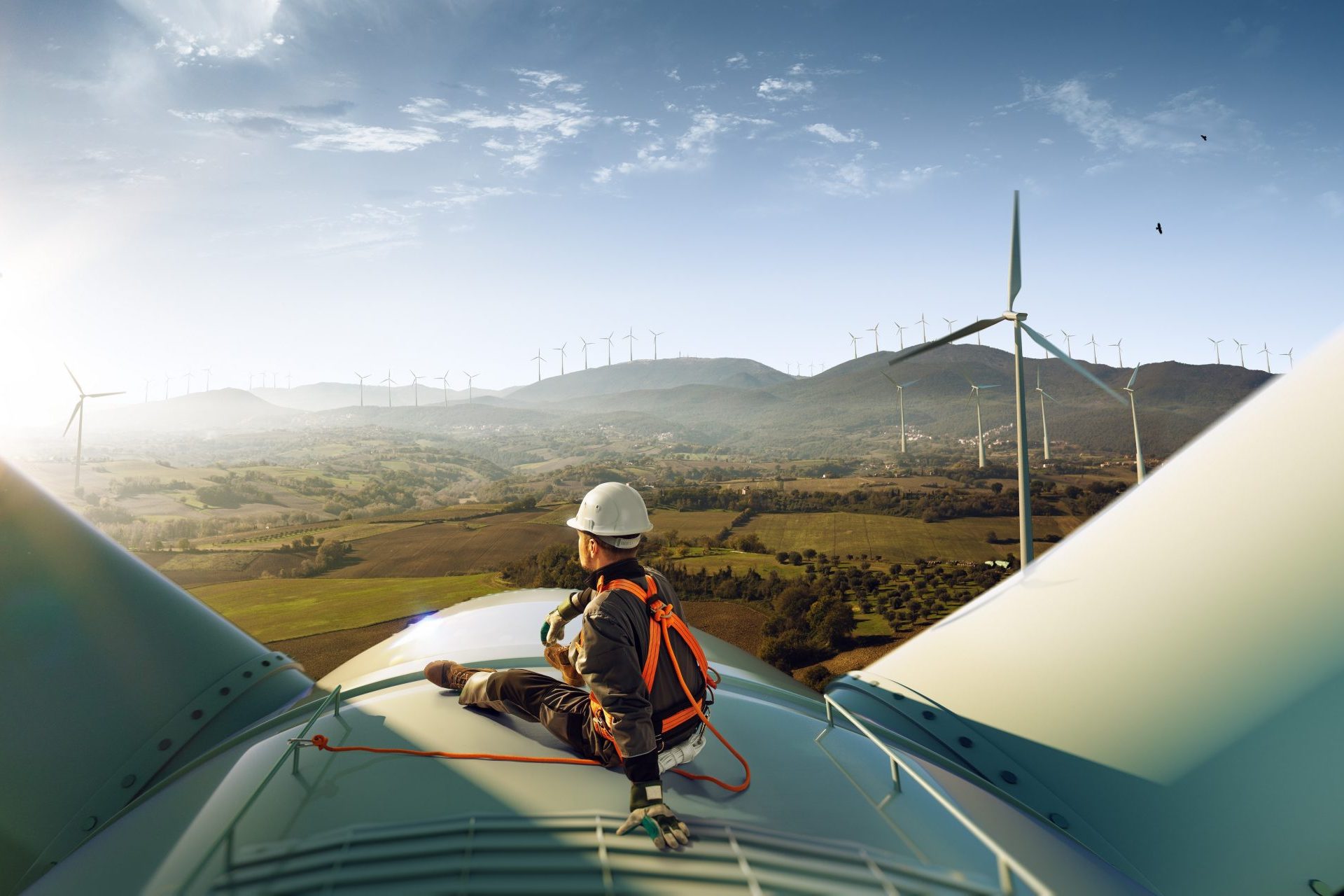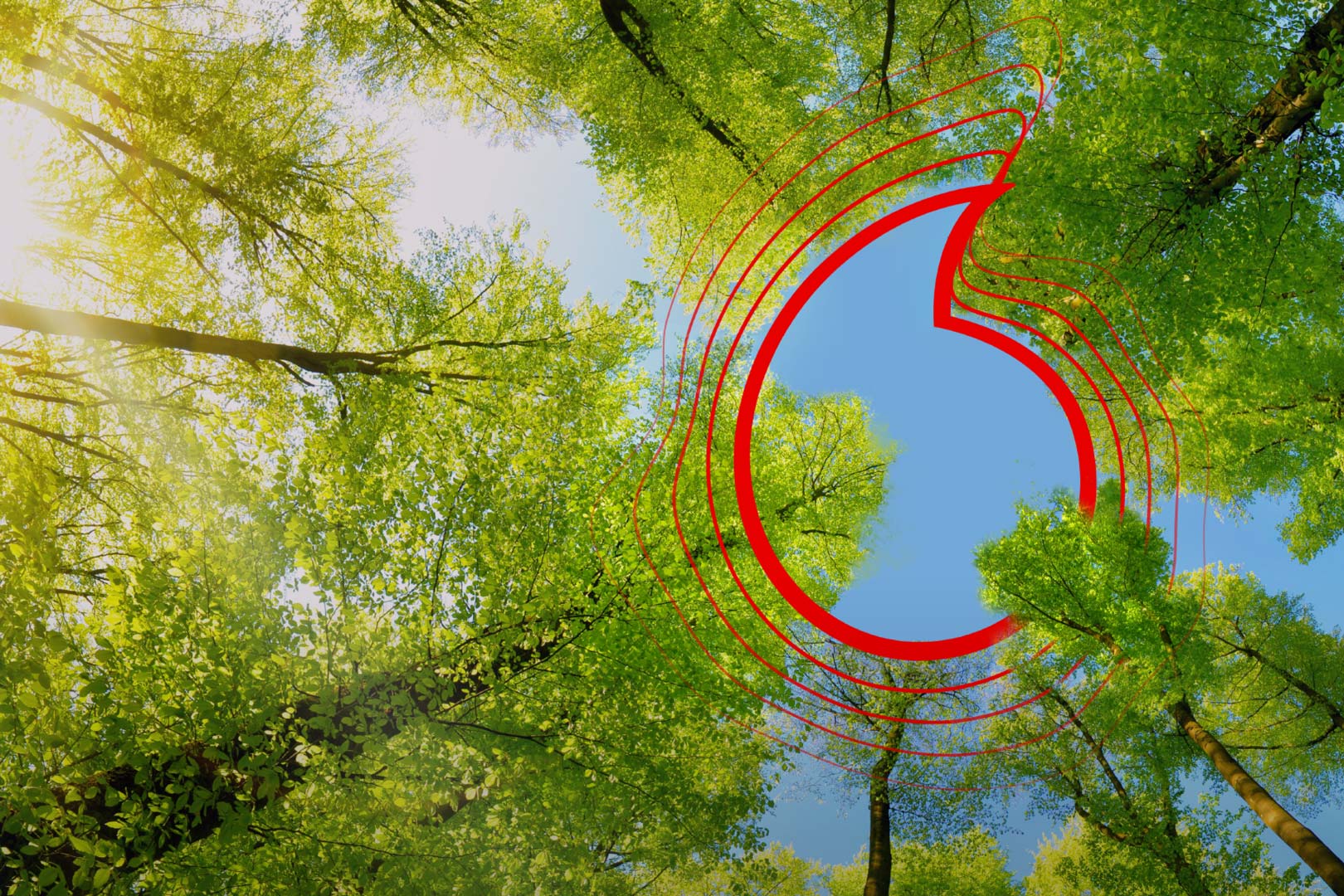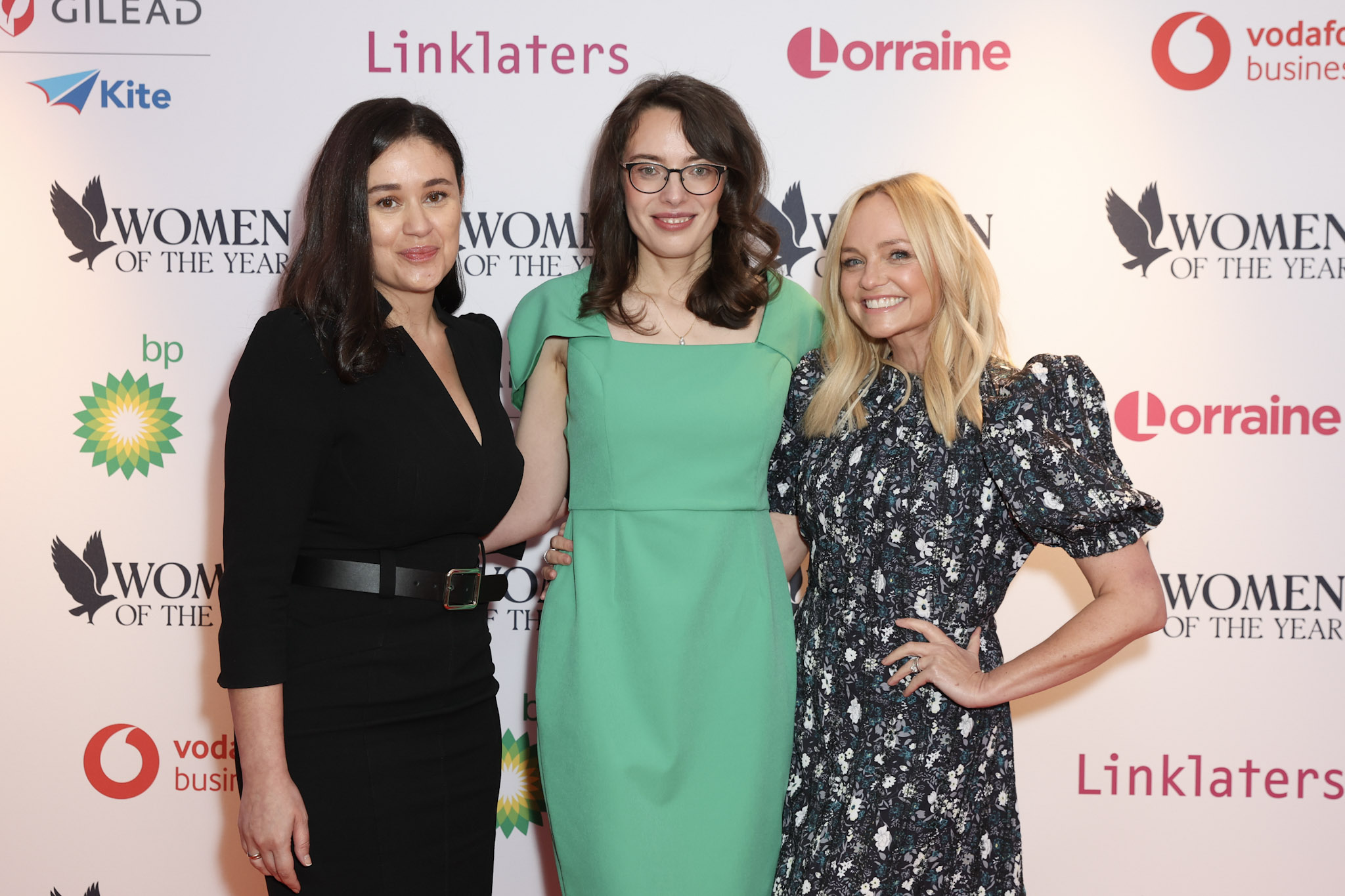Nico Rosberg, former world Formula One champion and founder of the Greentech Festival, was star guest at Vodafone’s Customer Summit at London’s Andaz Hotel in October.
Nico described the intense rivalry that saw him going head-to-head with Sir Lewis Hamilton on the track from the age of 13 until finally clinching the F1 Championship in 2016. He then promptly retired from F1 after achieving his life’s ambition.
“I’m incredibly proud to have beaten the best of all time,” he reflected in his interview with Vinod Kumar, chief executive of Vodafone Business.
Nico then began a new career in sustainability – much to the surprise of his “petrolhead” father and former F1 champion Keke Rosberg – sponsoring a team in the Extreme E global electric car racing championship.
Extreme E races take place in areas that have already been damaged by climate change to raise awareness of the issues and encourage action. Vodafone provides connectivity for the Extreme E command centres at each location.
But if he thought his rivalry with Sir Lewis had ended, he had another thing coming. Sir Lewis also has a team in Extreme E and the two are competing hammer-and-tongs once more.
“The nice thing about Extreme E is that the more we fight, the more impact we’re actually having because the more visibility we’re generating,” Nico told the audience of Vodafone Business customers.
How technology is helping us reach our net zero goals
Vodafone's UK CEO Ahmed Essam outlines the progress the company has made on its journey towards net zero carbon emissions for its UK operations by 2027.
He also founded the Greentech Festival in 2020, celebrating sustainable technologies, after realising that the Formula E electric car racing championship that he co-owns was missing the opportunity to promote sustainable technologies more generally.
The festival’s aim, co-sponsored by Vodafone Business, is to attract politicians, non-governmental organisations, start-ups and companies to “create partnerships, business revenues, and awareness of new products,” Nico said.
His proudest moment to date was giving Jane Goodall a Lifetime Achievement award for her conservation work with primates around the world, he said. And the most exciting innovation he’s come across is a system that uses solar power to extract humidity from the air and transform it into drinking water.
“We believe that the climate crisis is an opportunity,” he explained. “We want to keep that sense of optimism and create new revenue models and business streams.”
“But we need powerful partners to help us bring the story alive”
‘Level of urgency’
The Vodafone Business Customer summit was hosted by Amanda Jobbins, chief marketing officer, who outlined the many challenges facing us in this climate crisis – not least the fact that 2.7 billion people on the planet are still without connectivity.
Findings in the company’s ‘Fit for a Sustainable Future’ report [see ‘Download report’ link at the top of the page] show that “we’re not progressing fast enough,” she said. “The level of urgency is not kicking in and we’re not collaborating well enough. We’ve got to do it now.”
Vodafone Group is aiming to reach net zero carbon emissions for its own operations and those of its suppliers by 2040, with its European operations already using 100% renewable electricity. In the UK, Vodafone is aiming for net zero carbon emissions for its own operations by 2027. Vodafone Business also has a target of helping its customers avoid 350m tonnes of carbon dioxide.
“We need to imagine a beautiful future and make it happen,” said Amanda.
Peter Hinssen, a serial entrepreneur and author, warned the audience that the world was entering the “never normal” era, as the financially debilitating effects of global warming-related weather events began to be felt more frequently around the world. Businesses would have to innovate and adapt faster than they ever had before, he argued, but technology and co-operation could help them do this.
Shali Thilakan, Head of Sales for Vodafone Business, updated the audience on Vodafone’s efforts to reduce its own carbon emissions.
“We’ve switched to renewable energies and reduced carbon emissions by 50% in 2021,” he said.
He talked about some of the ways Vodafone is innovating, such as installing the first self-powering mast, which uses wind and solar energy to generate power.
Vodafone switches on the UK’s first live ‘self-powering’ mobile phone mast
The technology could not only support the race to net zero, but also help bring connectivity to ‘not-spots’ in remote and rural areas.
“We’re also electrifying our fleets,” he said.
Catherine Wheatley, Head of Energy Services at Mitie Energy, a Vodafone partner, elaborated on the various ways businesses could reduce their energy consumption, from switching off equipment more regularly to using heat pumps, from installing LED lighting to electrifying car and van fleets.
“We’ve saved 25,000 tonnes of CO2 as a result of our work for Vodafone,” she said.
The Circular Economy: Everything you need to know
The ‘circular economy’ is one of the latest green catchphrases, but what exactly is it and is it achievable?
Peter Lacy, Global Sustainability Services Lead and Chief Responsibility Officer at Accenture, talked about the need for a circular economy, whereby goods could be repaired, reused and recycled to prevent further depletion of natural resources.
And Giorgio Migliarina, Head of Products & Services for Vodafone Business, outlined the huge challenge of reducing carbon emissions when traffic across Vodafone’s network is increasing 50% every year. Despite this, the company is aiming to power its entire network with renewable electricity by 2025, he said.
Accenture research suggests digital technologies could reduce emissions 20% by 2050 in the energy, materials and mobility sectors, he added.
Stay up-to-date with the latest news from Vodafone by following us on Twitter and signing up for News Centre website notifications.
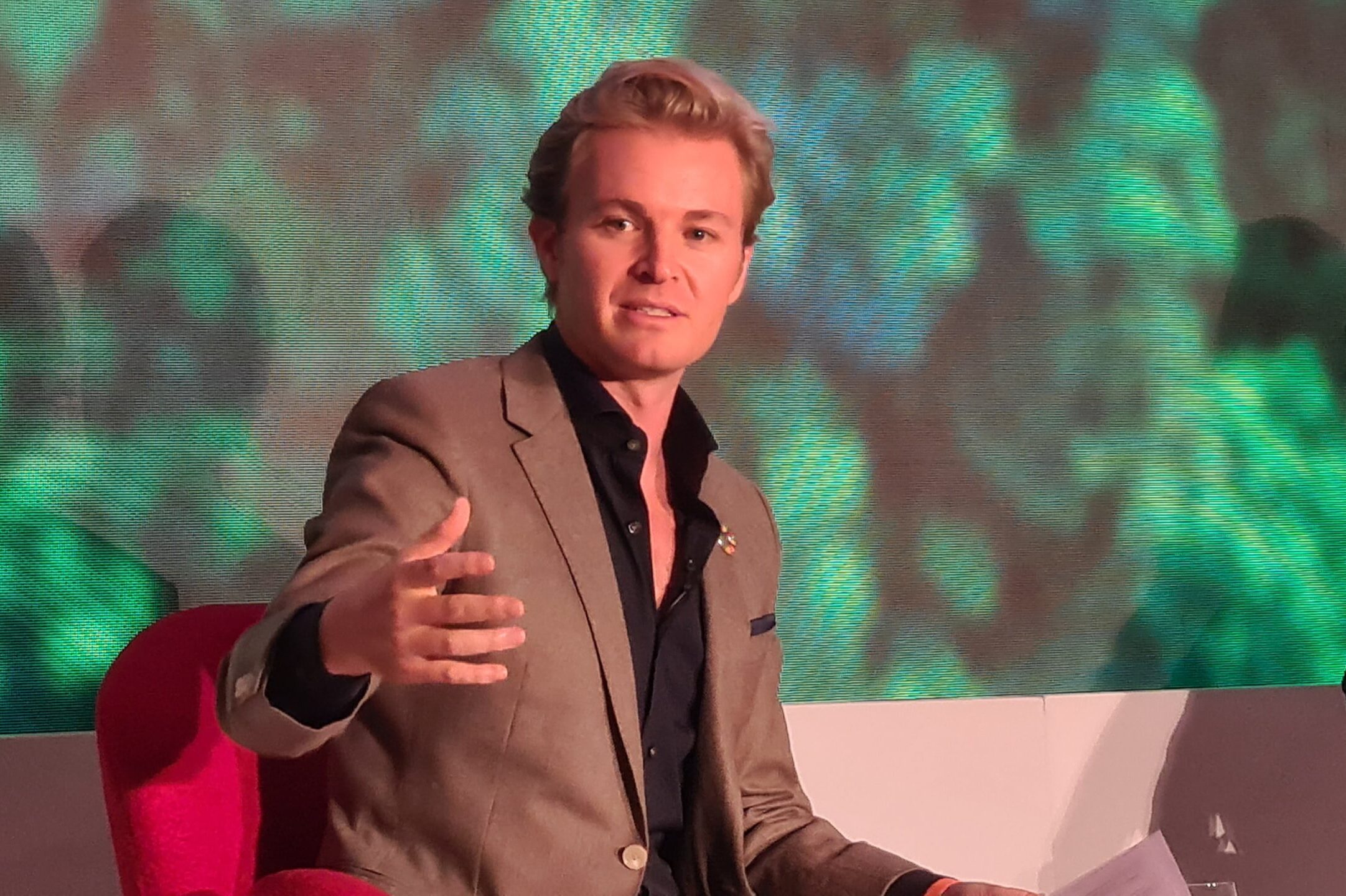
![White smartphone with screen from green leaves[Adobe Stock]](https://www.vodafone.co.uk/newscentre/app/uploads/2024/04/White-smartphone-with-screen-from-green-leavesAdobe-Stock.jpg)
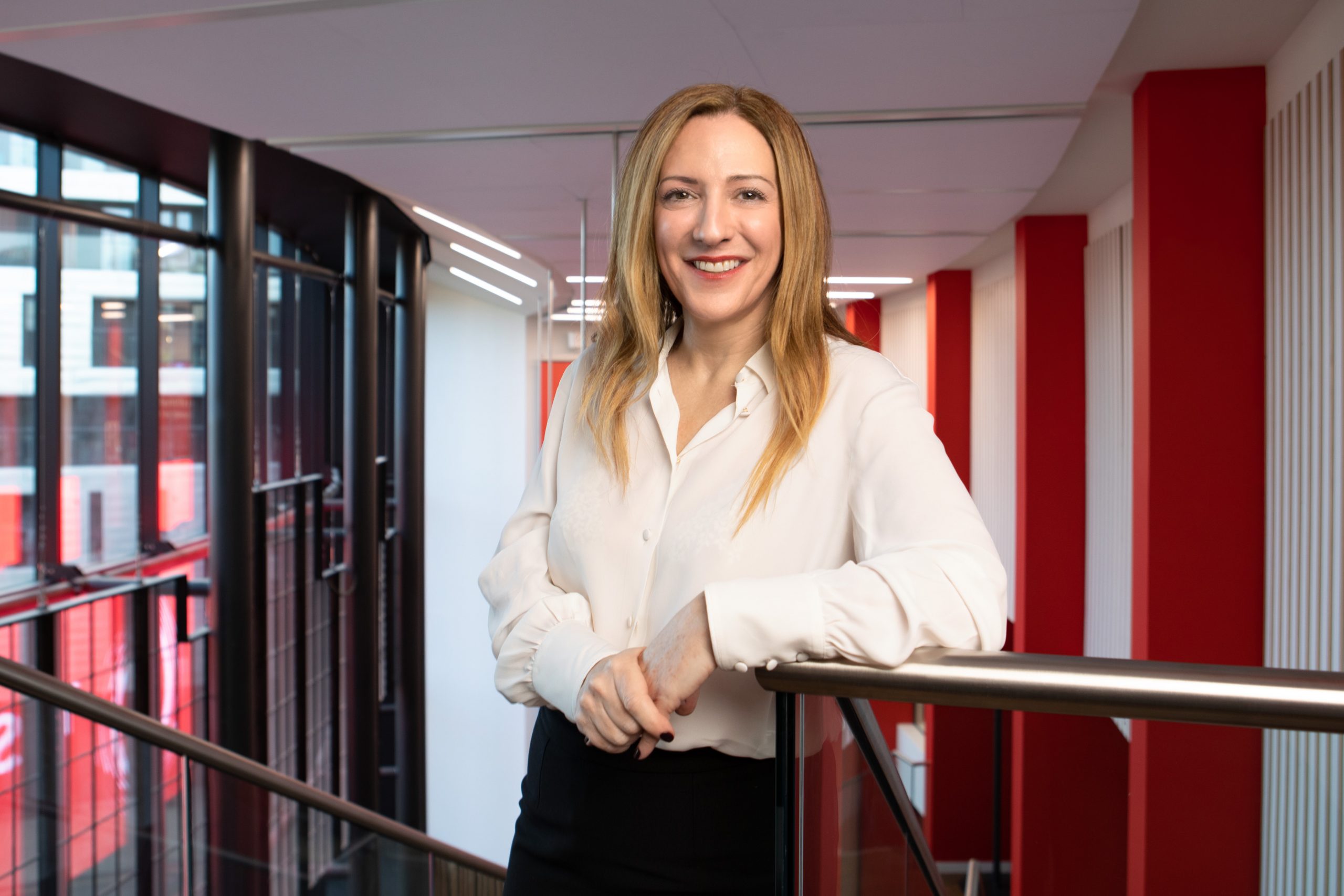
![Falling Dripping Water Drop[Adobe Stock] Falling Dripping Water Drop[Adobe Stock]](https://www.vodafone.co.uk/newscentre/app/uploads/2024/04/Falling-Dripping-Water-DropAdobe-Stock.jpg)
![1-happy woman with cleaning agent and phone[Adobe Stock] stock image of a woman using a smartphone while wearing rubber kitchen gloves and holding a spray bottle](https://www.vodafone.co.uk/newscentre/app/uploads/2024/04/1-happy-woman-with-cleaning-agent-and-phoneAdobe-Stock.jpg)

![Young Woman Cooking in the kitchen edited [Adobe Stock] stock image of a woman preparing vegetables in a kitchen](https://www.vodafone.co.uk/newscentre/app/uploads/2023/12/Young-Woman-Cooking-in-the-kitchen-edited-Adobe-Stock.jpg)
![Smart farm, agriculture concept, farmer use data augmented mixed virtual reality integrate artificial intelligence[Adobe Stock]](https://www.vodafone.co.uk/newscentre/app/uploads/2023/12/Smart-farm-agriculture-concept-farmer-use-data-augmented-mixed-virtual-reality-integrate-artificial-intelligenceAdobe-Stock.jpg)
